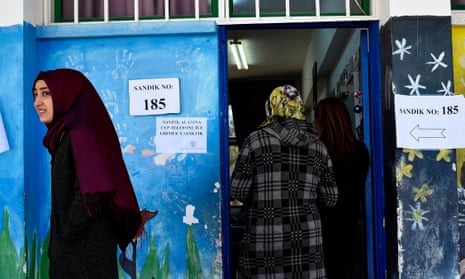Efforts are set to begin on forming a coalition government in Turkish-occupied northern Cyprus after the rightwing National Unity party won parliamentary elections but failed to secure a majority in parliament.
In a setback for forces seeking to reunite the island’s feuding ethnic communities, the UBP won 35.6% and 21 seats in the 50-member house – a reflection of its control over the levers of power after 27 years in office. The pro-solution and centre-left Republican Turkish party (CTP) came in with 20.9% and 12 seats.
Turkey, the only country to recognise the self-styled republic and its main financial backer, was quick to congratulate the prime minister, Huseyin Ozgurgun.
But how easy power sharing will be is far from sure. Longevity in office has also had a corrosive effect. The UBP – previously in coalition with the stridently nationalistic Democratic party which won 7.8% and three seats – has been widely linked in the statelet to corruption and malpractice.
The snap election was held against a backdrop of broad voter disaffection and allegations of abuse of power, misappropriation of public funds and anger over perceived subservience to Turkey.
For the first time, debate over how to overhaul the system eclipsed the Cyprus issue – and talk of reuniting an island divided since 1974 when an attempted coup aimed at union with Greece spurred Turkey to invade.
The reformist People’s party (HP), which emerged third with 18.1% and nine seats had, like the CTP, ruled out cooperating with the rightists before the poll. At least 26 seats are required to form a government.
“The central theme of this election was corruption and good governance and the UBP and Democratic party are synonymous with corrupt and bad government,” said Hubert Faustmann, professor of history and political science at the University of Nicosia. “They will find it difficult to form a government unless the CTP and HP betray their election pledge.”
What had emerged, he said, was a murky political landscape where neither hardliners nor moderates had triumphed. Even if the Rebirth party, representing Turkish settlers, which won two seats, joined forces with the UBP and Democratic party, the three-way government would be in with a wafer-thin majority.
